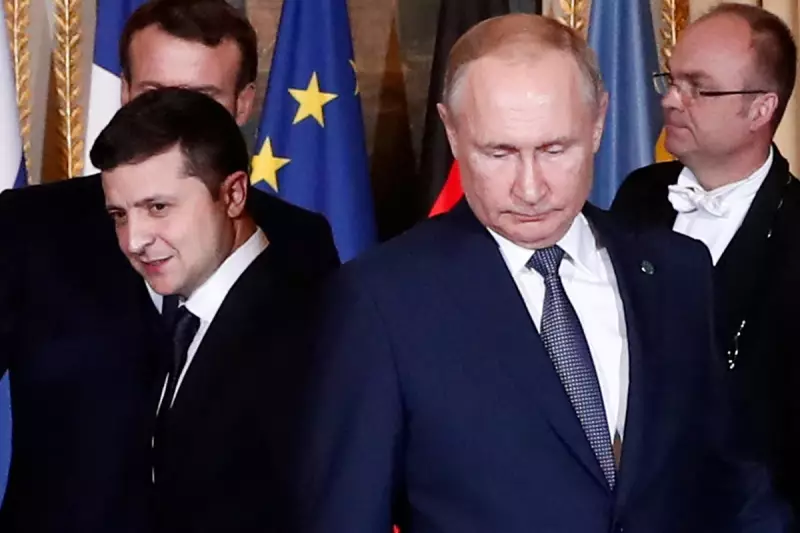
The frost of December 2019 in Paris was punctuated by a historic thaw in East-West relations as Russian President Vladimir Putin and his Ukrainian counterpart, Volodymyr Zelensky, sat down for their first-ever face-to-face meeting. The long-awaited summit, orchestrated under the so-called 'Normandy Format', became a focal point for international diplomacy.
For over five hours, the two leaders, alongside French President Emmanuel Macron and German Chancellor Angela Merkel, engaged in intense negotiations. The primary objective was to reinvigorate a stalled peace process for the conflict in eastern Ukraine's Donbas region, a conflict that had already claimed over 13,000 lives since 2014.
A Foundation for Fragile Hope
The talks, described by officials as 'very difficult', culminated in a joint communique that offered a glimmer of hope. Key agreements included:
- A full and comprehensive ceasefire in the conflict zone by the end of 2019.
- The exchange of all remaining prisoners of war between Kyiv and Moscow-backed separatists, a process known as 'all for all'.
- Demining operations in critical areas and the disengagement of military forces at three additional locations.
- A commitment to further talks within four months to discuss the contentious issue of local elections in Donbas.
While the meeting was hailed as a significant step forward, it was not without its stark reminders of the deep divisions that remained. President Zelensky, then a political newcomer, faced pressure to deliver tangible results for a war-weary nation. President Putin, meanwhile, maintained his stance on the complexities of the conflict, leaving the most politically sensitive issues—like the final status of the separatist-held territories—for future discussion.
The Legacy of the Paris Summit
The 2019 meeting is now viewed through a profoundly different lens. As the first and last major face-to-face engagement between Putin and Zelensky before the full-scale Russian invasion in February 2022, it represents a critical 'what if' moment in modern European history. The agreements, though partially implemented with a subsequent prisoner swap, ultimately proved insufficient to halt the slide towards a larger war.
The summit underscored the immense challenges of diplomacy in the face of entrenched geopolitical interests and serves as a sombre reminder of a lost opportunity for a peaceful resolution.





